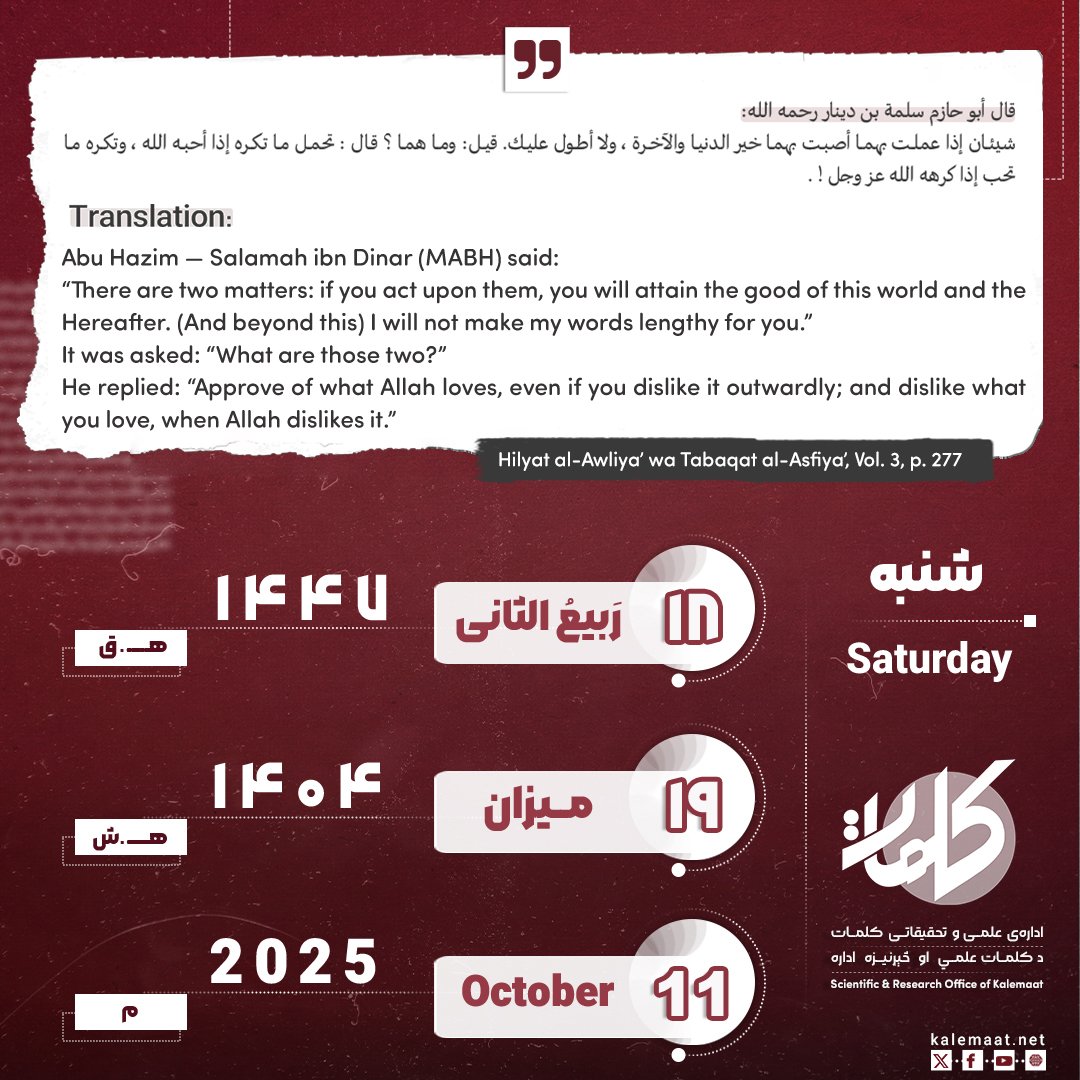Author: Obaidullah Nimruzi
The Guardian of Al-Andalus (Spain): Sultan Yusuf ibn Tashfin [MABH] (Part Five)
This research seeks to answer important questions:
•Who were the Murabitun (Almoravids)?
•What were their ideological principles and mission, and to what extent did they remain faithful to them?
•What was the role of Yusuf ibn Tashfin in the unification of the Maghreb and the salvation of Al-Andalus?
•What was his policy toward Alfonso VI, and was it successful?
•To what degree did the Almoravid state align with its Quranic slogans?
Allah Almighty says: (وَمَن يَبْتَغِ غَيْرَ الْإِسْلَامِ دِينًا فَلَن يُقْبَلَ مِنْهُ وَهُوَ فِي الآخِرَةِ مِنَ الْخَاسِرِينَ) [Aal-Imran: 85] Translation: “And whoever seeks a religion other than Islam, it will never be accepted from him, and in the Hereafter, he will be among the losers.”
And He also says: (وَلَن تَرْضَى عَنكَ الْيَهُودُ وَلَا النَّصَارَى حَتَّى تَتَّبِعَ مِلَّتَهُمْ) [Al-Baqarah: 120] Translation: “Never will the Jews or the Christians be satisfied with you until you follow their religion.”
The Almoravid policy was inspired by these very verses—a policy based on jihad, non-compromise with the enemy, and complete adherence to Islamic law. This study will go on to show how Ibn Tashfin (MABH) applied these principles in practice and how he succeeded in restoring unity and honor to Islamic lands.
The Policy of Crusadism: A Recurrent Phenomenon in History and the Present Day:
This section will demonstrate that strategies such as sieges, starvation, and mass punishment—which are now implemented in our time—actually have deep roots in Crusader policies. These same tactics were once used against Muslims in Al-Andalus. In addition, methods like disarming Muslims—regardless of the type of weapon—spreading fabrications and slander, breaking treaties, massacring women, children, and the weak, burning scholars alive, committing mass killings, looting the wealth of the people, and carrying out all kinds of violations without the slightest regard for ethics, customs, or law were all common practices in Crusader policy.
This research will also show that the Crusaders used various deceptive methods—such as alluring promises and political temptations—that ensnared many Muslim rulers. As a result, they lost their lands and possessions, and with them, both their worldly lives and their Hereafter. This is truly the greatest loss.
It will also become clear that neither ancient nor modern Crusadism has ever recognized concepts like lawful and unlawful, truth and falsehood, loyalty and betrayal—especially when dealing with Muslims. To the Crusaders, any tactic is permissible. The more a Crusader is skilled in deceiving, misleading, and defrauding Muslims, and the more adept he is at igniting discord among them—making them distrustful of one another and arranging secret agreements among their rulers to fuel enmity, hatred, and internal war—the more he is valued and respected within the Crusader political framework.
All of this is just a small glimpse of the reality seen in the behavior and actions of certain Crusader leaders, such as Rodrigo Díaz, known as “El Cid” (Al-Qanbitor).[1]
On the other hand, this double standard was not limited to the enemies alone. Many Muslim leaders of the time also suffered from a kind of hypocrisy and duality in their political, ethical, and military conduct. Their behavior had the worst impact on their people and led to grave consequences in their political affairs. The reason was their distance from the values and principles of religion, and their immersion in sin and the unlawful. The result was nothing but disgrace and humiliation.
The ascetic jurist Ibn Assal described this condition as follows:
لولا ذنوب المسلمين وأنهم
ما كان يُنصَرُ للنصارى فارس
ركبوا الكبائر ما لهنَّ خَفاء
أبداً عليهم فالذنوب الداء
Translation:
Had it not been for the sins and corruption of the Muslims,
No warrior of the Christians would have ever been victorious.
They indulged in major sins that were no secret to anyone—
Their sins are their chronic disease.[2]
Continues…
Previous Part/ Next Part
[1] Jawad Ali, Al-Mufassal fi Tarikh al-‘Arab Qabl al-Islam, Dar al-Saqi, Vol. 8, p. 235; see also: Husayn Mu’nis, Fajr al-Andalus, Dar al-Ma‘arif, p. 178.
[2] Ibn ‘Assal, Diwan of His Poetry, Edited by Muhammad al-Hilu, Dar al-Kutub al-‘Ilmiyyah, Beirut, p. 47.
